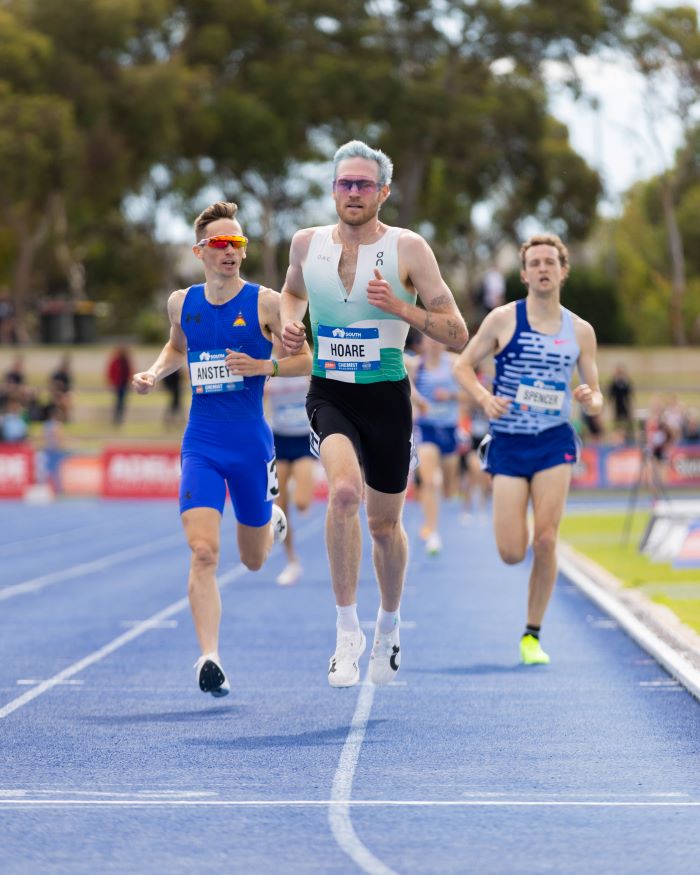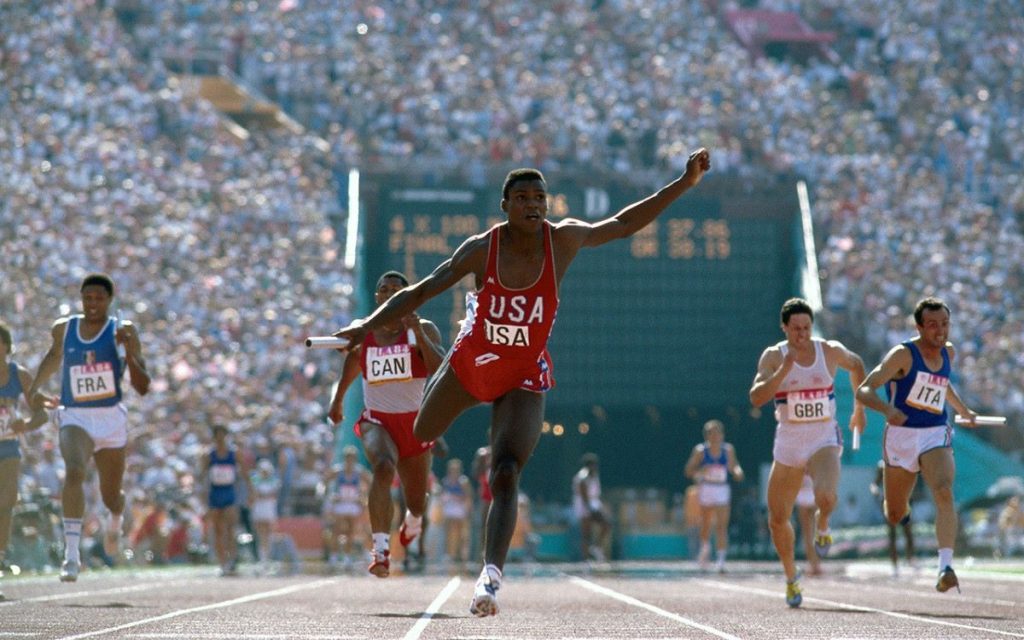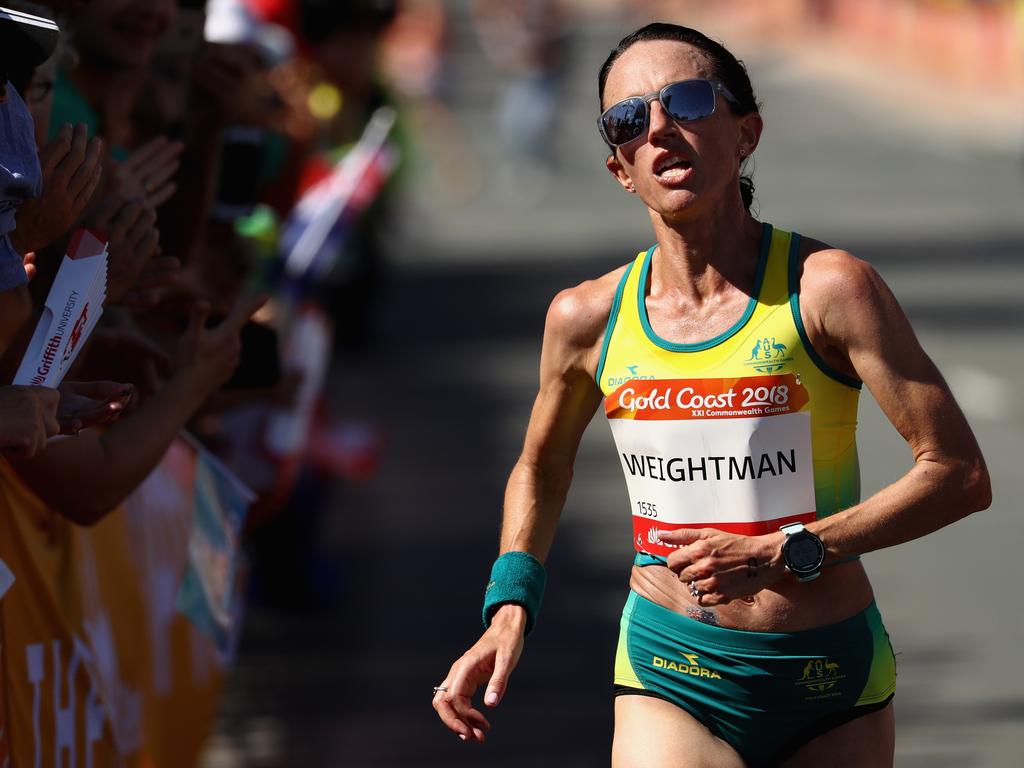By Brett Davies
Recently, Athletics Australia has been rocked by various selection dilemmas in a few events for the fast-approaching Paris Olympic Games.
There is the crisis over the women’s marathon, where four-time Olympian Lisa Weightman had raised the possibility of a legal challenge to her non-selection and several hgh profile figures in the sport have weighed in with opinions, mostly critical of the selection committee. It has led to deep division within Australia’s usually tight-knit athletics community. Similarly, Liam Adams, a late inclusion to the men’s marathon team, has had has expressed his frustration with the system, which almost saw him left off the team.
The men’s 1500m is a huge headache for the selection panel, with several athletes – Olympic finalists Ollie Hoare & Stewart McSweyn, teen sensation Cameron Myers, National Champion Adam Spencer and Jesse Hunt – all with the potential to wear the green and gold singlet in Paris.

Any cursory analysis of the history of Olympic athletics – and virtually all Olympic sports – can tell us, these selection problems have always been with us. Whether it’s to do with politics, nepotism or the arcane and often inconsistent selection policies of the national sporting bodies and the vagaries of the IOC’s rules and standards of performance which have been the subject of much criticism over the years. On many occasions, athletes who many have felt should have gone to the Games, have been left at home and it can often seem unjust – especially if the selection criteria are unclear.
In the USA, their selection policy has generally been crystal clear. It is uncompromising and often is considered unfair, but at least it’s consistent: The first three in the trial – provided they meet the necessary performance criteria – are the ones who book their seat on the plane.
This policy has, across the years, caused several athletes who were serious medal threats to be left off the team. In 1988, Jim Spivey finished outside the top three in the 1500m trial, but returned to form later in the season, with a 3.31.01 – the second-fastest time of the year globally – in Koblenz. He was not able to compete in Seoul, where the World Championship medallist may well have won a medal at the Games.
The great Carl Lewis was selected for both the 4 x 100m relay team and the long jump at the Barcelona Olympics in 1992, but he was left out of the team for the 100m, where he was World Champion. He had won the World title in spectacular fashion the previous year and would have gone into the race as a favourite. The Olympic 100m was won by Brit Linford Christie and Lewis’ compatriot Dennis Mitchell won a bronze, though big favourite Leroy Burrell (USA) was out of the medals. Lewis felt he should be there and that he would have won. There was some consolation for Lewis, as he won the long jump from rival Mike Powell, reversing their 1-2 placings from the Tokyo World Championships the previous year (where Powell broke Bob Beamon’s long-standing record) and also anchored the USA to a world record win in the 4 x 100m.

There was another dispute involving Lewis’ non-selection for the 1996 Atlanta Olympics’ sprint events, though he triumphed with a fourth consecutive long jump title, Lewis was outside the top 4 in the 100m, which meant he would not be selected for the 4 x 100m relay either. Lewis’s lobbying for himself to be included in the relay team in his final Games grated with many in the team and with the athletics press, who felt that he should perhaps show a little more dignity and some respect for his teammates.
In Britain in the 1980s, the two-time Olympic Champion and multi world record-breaker Sebastian Coe (now World Athletics President) experienced selection wrangles of his own. In 1984, Coe was returning to form very slowly, as he had taken some time to recover from toxoplasmosis, which sidelined him for the tail end of the 1983 season. He was selected for the 800m for the LA Games with reigning Olympic champion Steve Ovett and also Coe’s fellow Yorkshireman, Peter Elliott, but the 1500m was a different story.
Britain, was at the time, in the middle of a golden era for middle distance running. In the 1500m, they had the reigning Olympic Champion, the World Champion and the world record-holder. All three were different men – Coe, Steve Cram and Ovett respectively. In addition to the ‘big three’, there were other British athletes who would, at the very least, be likely finalists, if not potential medallists.
At the time, future Commonwealth Champion, Olympic medallist and World Indoor record-breaker Elliott was a rapidly developing 21 year-old 800m specialist. Having finished 4th in the World Championships 800m in 1983, Elliott was also improving in the 1500m. Elliott narrowly beat Coe at the AAA Championships a few months before the Games and was considered for the third 1500m spot. Because Coe had struggled to perform well over a mile or 1500m, he was very close to not being selected. He was ultimately given the nod by selectors for the 1500m, though his selection was criticised in the tabloid press in the UK, where many had written Coe off as being past his best, despite being only 27.
Coe’s selection was vindicated, when he won a silver behind 21 year-old Brazilian Joaquim Cruz in the 800m and Coe dominated the 1500m final, to capture his second consecutive Olympic title at the distance. He had overcome serious illness to return to his sublime best and his second Olympic gold was arguably his greatest performance. After outsprinting World Champ Cram down the home straight, a triumphant Coe celebrated then turned and angrily gestured to the Press Area by the track, pointing to several British journalists covering the Games.
Four years later, Coe was again embroiled in controversy, when he was left off the British team for the 1988 Seoul Olympics. Coe had missed the 1987 season and had struggled to get back to his best. He was ill at the British Olympic trials and failed to advance to the final of the 1500m. He felt that he had a shot at a third consecutive Olympic 1500m title, as well as a good chance of success in the 800m and, by Coe’s account, he was assured by the chairman of selectors that he would go to the Games.
However, the selectors decided to adhere to their guidelines, where two athletes were selected from the trials, with one athlete preselected in each event. Cram and Tom McKean went 1-2 in the 800m trial and World Championship silver medallist Elliott was preselected for the 800m. Elliott and Steve Crabb were 1-2 in the 1500m trial, with Cram, the fastest 1500m runner in the world, the preselected runner.
Coe, robbed of his dream to run at a third Games, was devastated. He had returned to good form a month before the Games and his 1.43.98 800m in Koblenz was the second fastest for a Brit that year, behind Cram. The tabloid press (the Sun, News of the World) launched a vicious campaign against Elliott, with one paper featuring a cartoon where Coe was a thoroughbred, and Elliott was a carthorse. Elliott was bombarded with hate mail, featuring abuse and demands that he give his position to Coe. The affable Rotherham joiner endured some stressful weeks before the Games, but overcame this and a severe groin strain to run 4th in the 800m and he won a hard-earned silver in the 1500m (Cram was 4th).
With the dominance of East African athletes in the distance events, there are several examples of athletes who miss out at national trials, only to gain form later in the season and perform better than their compatriots, such is the competitive level that Kenyans and Ethiopians (and more recently, Ugandans and Eritreans) are operating at, even at a national level.
Perhaps the best example of this is Kenyan steeplechase legend, Moses Kiptanui, one of the greatest all-round track distance runners in history. In 1992, an out-of-form Kiptanui finished fourth in his national steeplechase trial for the Games, and was left out of the team. Kiptanui later went on a tear in several post-Olympic events throughout Europe. He beat reigning Olympic Champion Matthew Birir in Monaco, then set a world 3000m record (7.28.96) in Cologne. He then broke the world steeplechase record in Zurich (8.02.08).
Kenyan-born Dane Wilson Kipketer was the outstanding 800m runner of the mid to late 1990s and he is arguably the greatest 800m runner to never win Olympic gold. In 1996, Kipketer was the reigning World Champion. He had switched his national allegiance to Denmark, having lived there for several years.
He had won World Championship gold in a Danish uniform, but the IOC’s rules on nationality were more stringent than the IAAF’s and Kipketer, not a citizen of Denmark at the time, was unable to compete without the ok from Kenya. He was given the option of running for Kenya, but didn’t want to. He reached out to the Kenyan Federation to help him out, but they would not grant Kipketer permission to run for another country. He was denied the opportunity to compete in Atlanta, but went undefeated all year and went within 0.1 of Seb Coe’s 15 year old record (1.41.83) in Rieti.
The next year, Kipketer went on to win a World Indoor title, smash world records indoors (1.42.67) and outdoors (1.41.24 & 1.41.11) and win another World Championship gold in Athens 1997 and he picked up another world title in Seville two years later. He ran a poor tactical race in the Sydney 2000 800m final and won the bronze. He was run down by Yuri Borzakovsky in the home straight in Athens in 2004, winning silver. He retired soon after the Games.
So, with Sinead Diver, Gen Gregson and Jess Stenson to toe the starting line in Paris, we should spare a thought for Lisa Weightman, Izzy Batt-Doyle & Eloise Wellings, who would be going to the Games in any other year. Never before have we had such depth in a major marathon.
The selection of athletes is complicated in an event like the marathon, where several factors need to be considered. It is a race that takes place in all weather conditions and many different courses, some hilly, some dead flat. This can often mean that times can vary by several minutes.
Of course, experience plays a part, as well as how athletes perform at major championship level, where, due to the fact that the race is almost always run in hot and humid conditions is a very crucial factor to consider and athletes who have a record of performing well should be considered. That is certainly a mark in Diver’s favour, despite her age (47). Stenson’s Commonwealth title needs to be taken into account. Gen Gregson, a novice at the event, has vast international experience across different events and looks like she has potential to improve in the marathon. The three Aussie Mums are all incredible athletes and hopefully receive plenty of support from the Australian public.
With the likes of former stars Sally Pearson, Lee Troop and Dave Culbert giving us their views on social media, this situation has turned very ugly. Weightman is perhaps right to feel hard done by, but one hopes she can ultimately accept the decision with grace. We look forward to a fantastic Games marathon.
The author wishes to thank The Sydney Morning Herald, The Guardian Online, WorldAthletics.org, and the BBC & Athletics Weekly archives.





